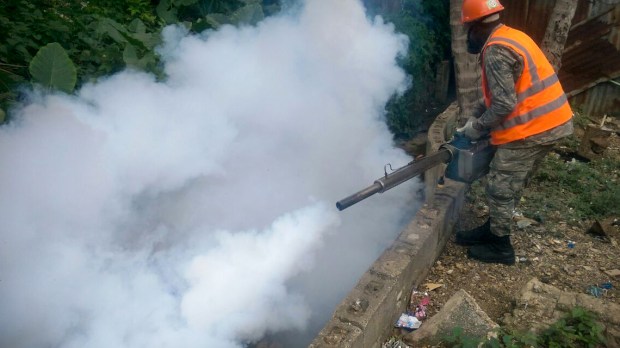Colombia already was dealing with a four-decades-long armed conflict between guerrillas, government forces and paramilitary groups. Parts of the country suffers from extreme poverty and malnutrition. More than five million people have been forcibly displaced.
So the advent of the Zika virus was very unwelcome, indeed. And its timing could hardly have been worse.
The World Health Organization has declared the Zika virus, which is transmitted through mosquito bites, as a “public health emergency of international concern.”
“Zika is a terrible outburst of disease, but it’s only adding to a lot of problems that already exist in the area,” said Jelena Kaifenheim of Malteser International Americas, the global humanitarian relief organization of the Order of Malta.
Malteser has been working in northern Colombia since 2014, especially in the departments of Magdalena and La Guajira, a hilly and outlying rural area. Both have a high concentration of indigenous groups and Afro-Colombian populations. “They were both heavily affected by internal displacement. We realized there was a huge need for nutrition and food security, so we decided to make this one of our main target areas for Malteser International as well,” said Kaifenheim, Malteser’s Latin America and Caribbean program manager.
Last year’s El Nino is still affecting Colombia adversely, and parts of the country have devastating droughts, which have left many rivers in the area with very low water levels. What water is left becomes stagnant, which is a perfect breeding ground for mosquitos. Because of water shortages, families store water at home, often in open containers. Those provide additional breeding grounds for mosquitos. In addition, higher than normal temperatures earlier in the year gave rise to a higher mosquito population.
Though it’s difficult to know for sure how many people have Zika — because the medical system’s infrastructure is not advanced enough to keep good records and because Zika’s symptoms are very similar to those of Dengue and Chikungunya, official statistics in the two departments where Malteser works register 5,000 infected pregnant women.
“We started prevention campaigns in the communities where we’re working,” Kaifenheim said in an interview from her office in Germany. “We focus a lot on reducing stagnant water and using preventive measures for not getting mosquito bites — repellant or mosquito nets. The area is very, very poor, so a lot of people don’t have preventive material or even the means of getting to a market where they could purchase these things. Right now we can help 200 families with pregnant women, which is a very small percentage. In our target area there are 1,400 pregnant women who would urgently need help.”
And that doesn’t count the elderly and very young children, who are part of the greater local population of some 23,000 people.
Malteser is also trying to start a fumigation campaign, but it’s “quite costly,” Kaifenheim said.
The crisis has led some countries to urge women to delay pregnancy for up to two years, as Zika is thought to contribute to a sever birth defect known as microcephaly. That connection has not been definitively proven, but abortion advocates have used the crisis to ramp up efforts to liberalize abortion laws throughout Latin America and many have questions the Church’s restrictions against contraception. The Los Angeles Times reported Sunday that so far no microcephalic babies linked to Zika have been confirmed in Colombia, but the government is urging women to defer pregnancies for six months, after which authorities hope to have the epidemic under control .
But the concern is affecting the local indigenous population in northern Colombia very hard. For the Wayu people of the area, it’s very important that young people have babies as soon as they get married, said Jill Watson, a Malteser USA spokeswoman who visited the region earlier this month. “Zika is stopping that and causing a culture shock, altering their futures indefinitely because they can’t have children. They want to be safe, want to make sure they don’t get the virus. They’re very concerned. We want to help them protect themselves.”
John Burger is news editor for Aleteia’s English edition.

